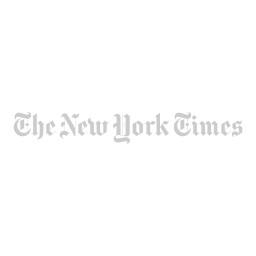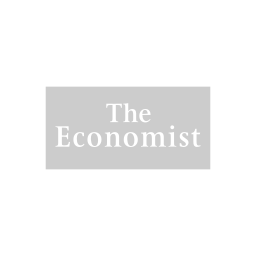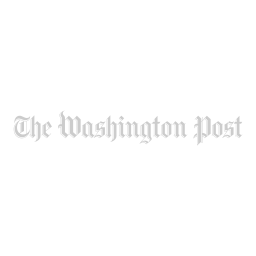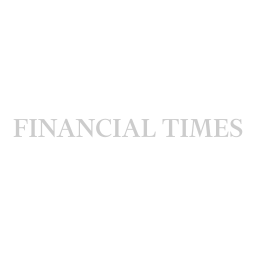My husband is an essential worker in a high-risk field.
Photo by Cameron Clark.
A Splendid Note from Liene:
I’ve been fortunate to have worked with wedding pros from 94 countries over my career and I’ve heard from a ton of them this past month – all with similar questions, stories of lost business, uncertainties of what to say to clients who are completely stressed.
We’re all in this together. If you have questions on Coronavirus and your wedding business, feel free to email me at hello@thinksplendid.com.
I’ll be sharing my answers here on the Think Splendid blog so that everyone can benefit. I’ll also keep your name anonymous. Totally free, no strings attached – I truly do not care if you never hire me.
Focus on the Splendid
We're an industry that makes our living by celebrating life's milestones, so I'm going to start each of these update posts with a few positive COVID-19 things we can all smile about:
TOTAL GLOBAL RECOVERIES
The number of global recoveries is now more than 738,000 people, up from 692,000 yesterday.
Neighbors Caring For Neighbors
Splendid Q+A on Coronavirus and Your Wedding Business
This question is from a wedding photographer
I recently read your article, “How to Tell a Client “No” in a Gentle Yet Professional Way” and found all of your advice to be extremely helpful. I wanted to reach out with a few other questions I have:
1) I know everything is up in the air right now as far as when the shelter in place order will be lifted, but I have a few couples in June and July who are very determined to move forward with their weddings if they can.
Let’s say I am hypothetically exposed to someone with COVID-19 in the 2 weeks leading up to one of those weddings and need to quarantine myself further.
How would you suggest handling this to serve my client well but also make sure I am protected from any legal ramifications of not being able to shoot their wedding so last minute (assuming they are unhappy with the thought of an associate taking my place)?
I ask this mainly because my husband is a firefighter, so his exposure (and my potential to be exposed) is a genuine possibility.
2) It seems like when the shelter in place order is lifted things like wearing masks in public, taking temperatures, social distancing, etc, will still be enforced for a period of time.
What if I show up to photograph a wedding and my clients or their guests aren’t following current restrictions?
How do I serve my client but also protect myself from being in a position where I may not feel like my well-being is being accounted for?
It feels like a delicate balance to make sure I am protecting myself while also continuing to make my brides feel like their needs are being met.
Any help or insight you might be able to give is much appreciated!
Answer from Liene
This is an already stressful situation, and I’m sorry you have to deal with the added stress of a higher likelihood of exposure on top it. We are all grateful to the essential workers like your husband who are keeping us safe during these uncertain times.
You are wise to be proactively considering ways to mitigate not just your own exposure from clients, but ways to protect your clients as well.
First, looking at a realistic timeline for recovery, I doubt these weddings are going to happen in June and July.
We know that in Canada, Toronto has banned public events through June 30th and Alberta has closed schools through August. In the U.S., Virginia has a stay at home order through June 10th (and has since March), and just today Illinois announced they would be extending their stay home orders through May 30th. Also, earlier today, Malaysia extended their movement control orders to May 12th.
In the private sector, CNN has told the majority of their staff that they will be working from home and not returning to the office until at least September, and the service and hospitality industries (of which we are a part) are now grappling with the news that Coronavirus can likely also be spread through air conditioning vents.
All of this is hard – really, really hard – but we’re dealing with a deadly virus, not an added tax that Congress or Parliament can just vote to repeal and have it be over with.
While these orders and limitations are difficult for everyone mentally, emotionally, physically, and financially, it would be catastrophically worse for the economy than it currently is if the death rate spiked due to lifting quarantine too soon.
Should your city lift the bans prematurely against the advice of the science and medical experts, and if your clients choose to carry on with their events, even if modified for potential size limitations, there are some steps you can take to protect yourself:
1) If your contract already allows for a substitute photographer, you should be fine.*
Many wedding photographers have this in their contracts in case they are unable to shoot the wedding due to an unexpected pregnancy or unexpected complication with a pregnancy, other health issue, a family emergency, etc.
2) If your contract does not already include this, you can add an addendum to your current contract that says you will send a substitute photographer should you need to follow quarantine guidance based on exposure.
3) The alternate photographer has to be as good as you (or better) and be able to deliver a similar aesthetic. It’s unfair to the clients to send someone who won’t be able to produce the level and quality of work you can.
While there are always differences between photographers in your perspectives as artists, you can still hire someone who has your skillset, technical ability, and who has a similar artistic approach to take your place.
An example: if you specialize in a light and airy look you wouldn’t want to send someone who is an amazing photographer but whose images tend to be dark and moody. Both are valid aesthetics, but you were hired for yours and the alternate photographer needs to be able to deliver not just images, but images in the aesthetic the client had in mind when they hired you.
4) When it comes to needing your clients to follow certain procedures, there are some things you can do as well. You can add an addendum to all current contracts saying that the client needs to implement appropriate precautions as outlined by national or local guidance.
It's important the vocabulary you use says guidance, not mandates.
This matters because in the U.S., anything from the CDC is considered guidance or advisory. It's up to state and lower level government authorities to expand on guidance and issue mandates. The president doesn’t actually have the authority to issue a federal stay home order nor does he have the authority to lift state bans (he can limit travel, though).
So if the CDC says people should be taking certain precautions such as wearing masks and it's not mandated in your city, you want your contract to say guidance needs to be followed, not necessarily mandated orders.
5) It’s a good idea to add these to your standard wedding contracts for any new bookings going forward so you don't have to create addendums later on.
6) For current wedding photography clients, you can appeal to their common sense and tell them that your husband is a firefighter (if you're comfortable sharing that information) and that's why you are implementing an addendum with the additional precautions.
For future clients, I would not necessarily share what your husband’s job entails because there is no need to potentially scare people off from hiring you.
I don't think it's unfair to the clients NOT to share this information since your contract will outline the precautions you're taking. Is every wedding vendor married to a doctor or healthcare professional disclosing what their spouses do for a living? I think you can protect yourself while maintaining these privacy boundaries if you wish.
Have the language in your contract to protect you and should they ask about it, simply tell them you are taking precautions not only to protect yourself and your family but to protect them and their wedding guests as well as the other vendors working the events.
This is honest without oversharing. You don’t need to plant fearful ideas in a potential client’s head when you’re being responsible and proactive by implementing protections for yourself, your family, and your clientele.
More questions?
When I say we’re all in this together, I mean we are all in this together. I am not a blogger, I am a business consultant and speaker. This blog is not sponsored nor ad supported and is not how I make my income. Since we are all in this together, I am not charging consulting fees to answer questions related to COVID-19.
I will continue answering Coronavirus-related wedding business questions from ANY wedding, event, or hospitality professional, located anywhere in the world, here on the blog over the next few weeks and possibly longer, so that anyone, anywhere in the world can access the information they may need for their business at any time.
I’ll be continuing to work through the questions sent in so far here on the blog so that we can all navigate this together as best we can. Please send any questions you have to hello@thinksplendid.com and remember there is no such thing as a dumb question.
I’ll be keeping the names anonymous so you don’t have to worry about being attached to a question in a Google search or in case you don’t want a colleague or competitor to know what’s on your mind.
*This is not legal advice and should not be construed as such. Remember that laws and regulations vary by city/county/state/province/country. Please check with your own attorney for legal advice on your specific situation.
Written by
LIENE STEVENS
Liene Stevens, the founder and CEO of Think Splendid, is an author, speaker, and award-winning business strategist. Armed with $2000, a healthy work ethic, and an undeserved dose of privilege, Liene bootstrapped Think Splendid from a scribble in a notebook to a successful wedding business consulting firm with a client list spanning 94 countries.

















